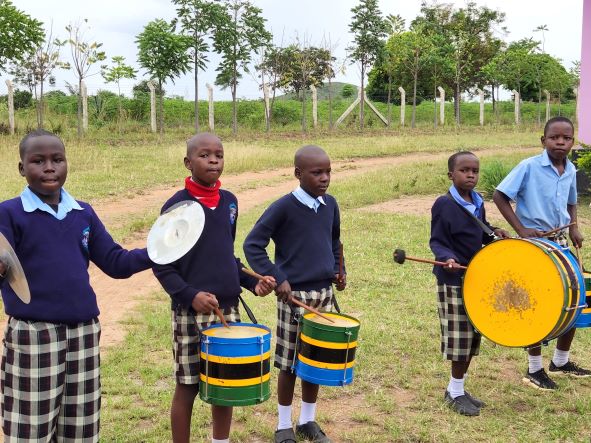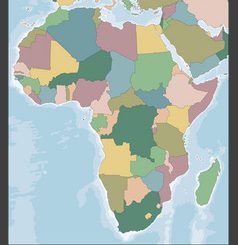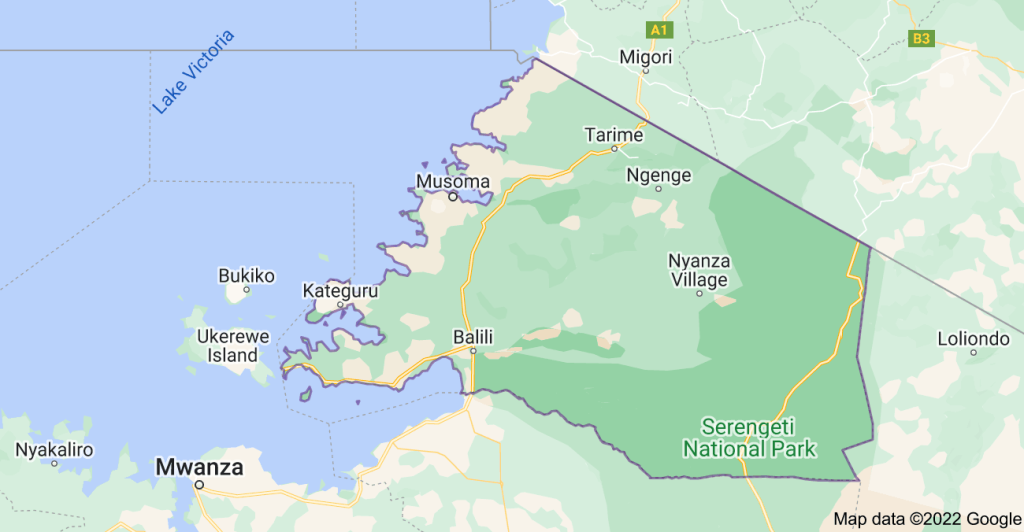Sunday started with Anglican Aid staff member Chris Cooper coming down to preac at the Cathedral here in Musoma. Tim Swan the CEO was speaking at Rorya Diocese’s Cathedral about an hour an a half away.
After church Chris and I went back to where I am staying, walked to Lake Victoria and met Tim Swan and then went to lunch at Matvilla with three bishops. All six of us had Tilapia (I am sure that came as a surprise). It was a working lunch of sorts as various issues were discussed. We then drove to Bunda where the three Aussies stayed at the home of a retired Australian missionary who has been unable to get back since 2020. The whole group of about a dozen had dinner while the locals went off to their accommodation. Alpha Lugoley, the principal of Bunda Bible College stayed back at my suggestion as Tim and Chris’s visit was about visiting BBC and discussing scholarships and the development of the college. This allowed an opportunity for Alpha to explain issues at the college as next day will be busy.
Monday started early for the 7am chapel service which was excellent. Students even had an Anglican Aid song they composed. Video and lyrics Then after “chai” we walked the grounds of a college spread across sixt acres and the Anglican Aid people discussed the infrastructure needs and locations. Tim left Chris while I accompanied him to Shalom Primary School, constructed by Anglican Aid since 2017. The development since my last visit here in 2019 has been astounding and the school looks great. Met the builder who is onsite constructing a classroom and had a chat to him and commended him on the quality of their work.



Then back to college for lunch before a visit to Bunda Girls School. A real flying visit as Tim and Chris had a three hour drive from here so time very limited.






From BGSS we made a quick stop to the Girls Brigade Sewing Cetre which explains what it does. Village girls come in for a year and from never having touched a sewing machine are sewing within two months as some of the examples we were shown testified. This helps girls who may not even have been able to start secondary education and be destined to early marriage and life in a village with no skills to at least have a chance of earning an income. Apart from sewing they are taught the basics of business, keeping records and pricing work.
After the formalities, Tim was presented with a cake to mark his visit which he duly cut. The girls then asked if they could sing a song which being acapella was displaying the natural ability of these girls’ voices and rythm. After what was a rushed visit Tim and Chris bade us farewell as they headed to Mwanza to arrive before dark.



The rest of my week was flat out. On Wednesday I have the morning off for a retirment course I am doing on Zoom back home. I got into the office at 11.30am and asked to meet in the Bishop’s Office with the Link Officer and Bunda Bible College principal. Three international students have run into visa issues and were going to be deported. I did assist them to find a solution.
Bishop and I visited a former disability program about 8kms south of Musoma which is a white elephant. After operating since 2003 and the Dutch funders building a massive complex to provide community based support to children and adults with all sorts of disabilities, the centre closed at the end of 2014 when funding ceased. One of my tasks is to assist the diocese find a solution. The buildings have not been repurposed as the bishop wanted to ensure the funders are involved in any decisions about future use. I have a meeting with the national coordinator coming up to discuss the options.. Truly depressing when I have seen a similar program Anglican Aid established on the western side of the lake which meets so many needs for families with children with disabilities.
On Thursday I arranged a meeting to discuss the development of a newsletter for overseas partners to tell of the many things happening in Mara Diocese. It has the approval of the bishop so the link officer and Diocesan Secretary were involved in how to get it up. The website is down so Bishop rang a young volunteer who maintains it. While on the phone the error message changed to site down for maintenance. He came in later in the day and I met him briefly. He was to return Friday for a meeting to discuss the newsletter and website further.
Musa the Bishop of Rorya turned up as arranged for a two hour lesson on Google Drive and how to make best use of Google features. That was time well spent.
The week finished with a meeting to discuss the farm with the Manager Annarose. She is also responsible for parents in their nineties who want to return home to their village. A real difficulty for her given both have had strokes in recent years and mum requires total care. The farm issues a re being slowly addressed. Sunflower harvest looks good and she has lots of ideas about progressing things there.
And Friday afternoon was spent with Mwita the young guy who will work on the newsletter. I went through the various things that should go into it. He will not only do the graphic design but also the reporting by interviewing the staff and getting the stories. I left him at 4pm as I am facilitating the English Bible study each week. It had it largest attendance since I have been here. It is alerting me to many issues that need help in the church here.
He is 28yo, graduate of a university in graphic design and unusually knows Apple products.
As I type the weekend is coming to a close. Saturday was a visit to a village where 25 people has been baptised in the morning after a week of evangelism. Bishop goes out on Saturday afternoon to do some teaching and be a presence among the local community. Sunday he goes out to confirm any who are ready and teach again.
Lunch on Sunday with Sange Wangoya and his wife Mary. A beautiful couple, each with amazing stories. I will post about them on Facebook.
I heard what sounded like a baby crying as I was typing and after searching the house went to the window in my room to see a sight I won’t see again in my life. Gifts are never knocked back. I got given a chicken once in Congo but they did swap it for something I could travel with. Too much to write about here so hopefully a separate blog. The photo tells the story of the village showing appreciation to the bishop.

Yes this sheep and a goat stood on a thirty minute journey on rough rural roads on top of the vehicle to come home with Bishop.



